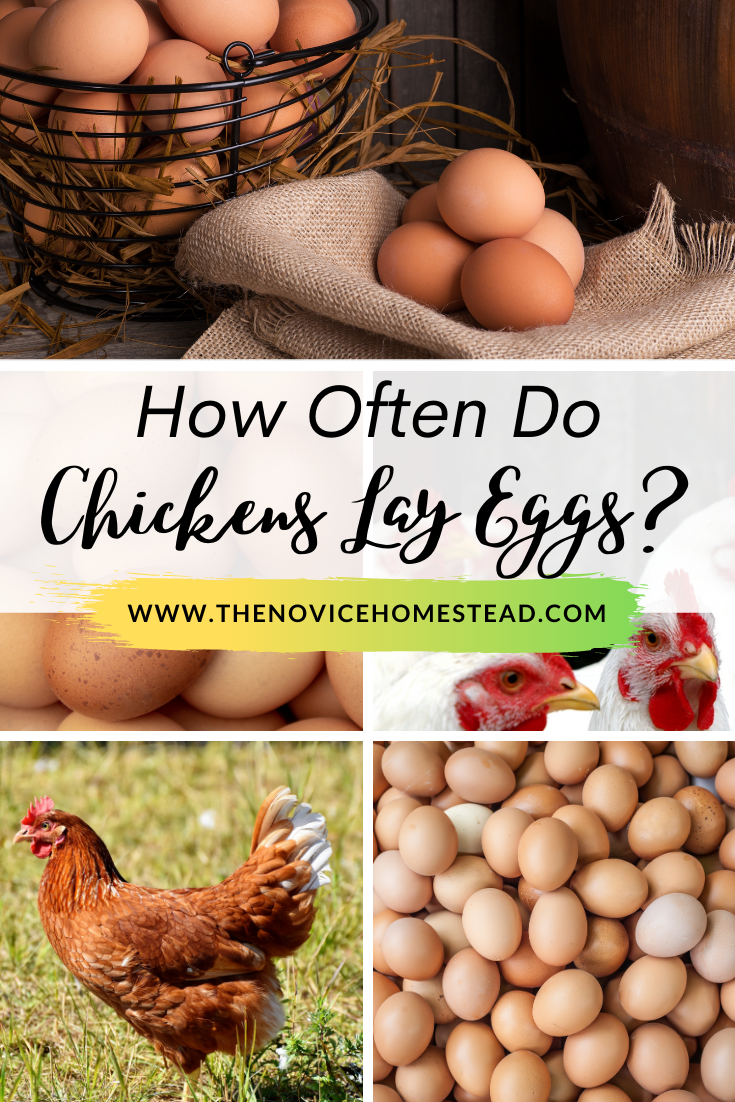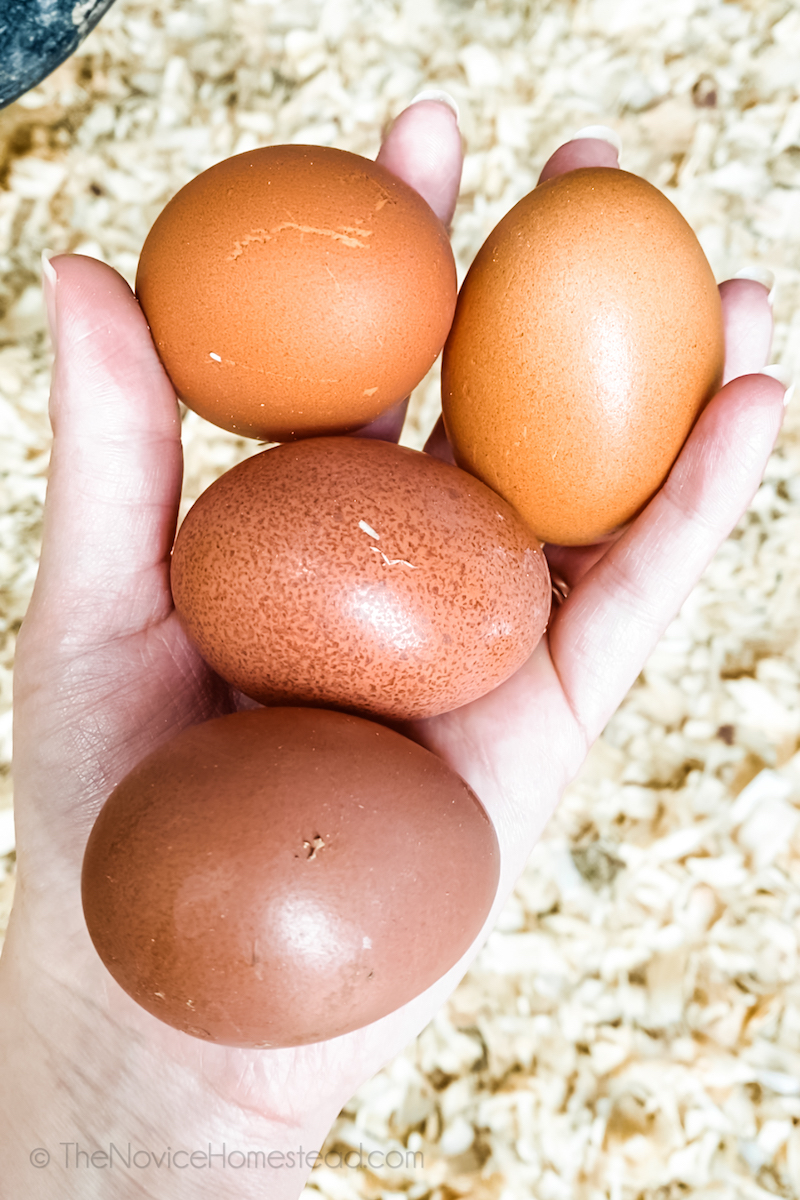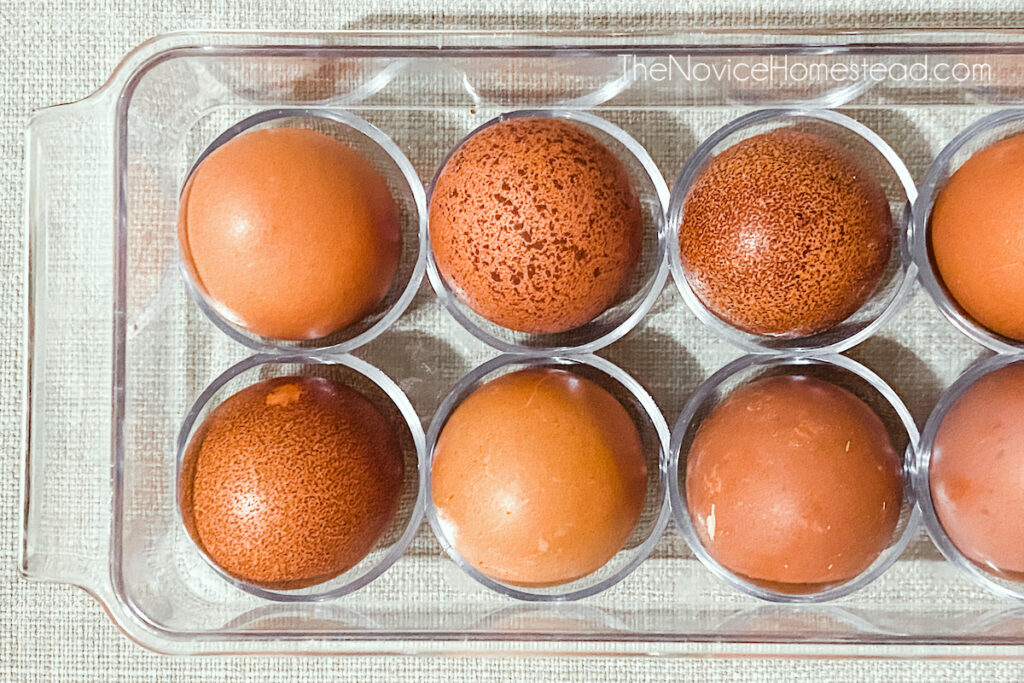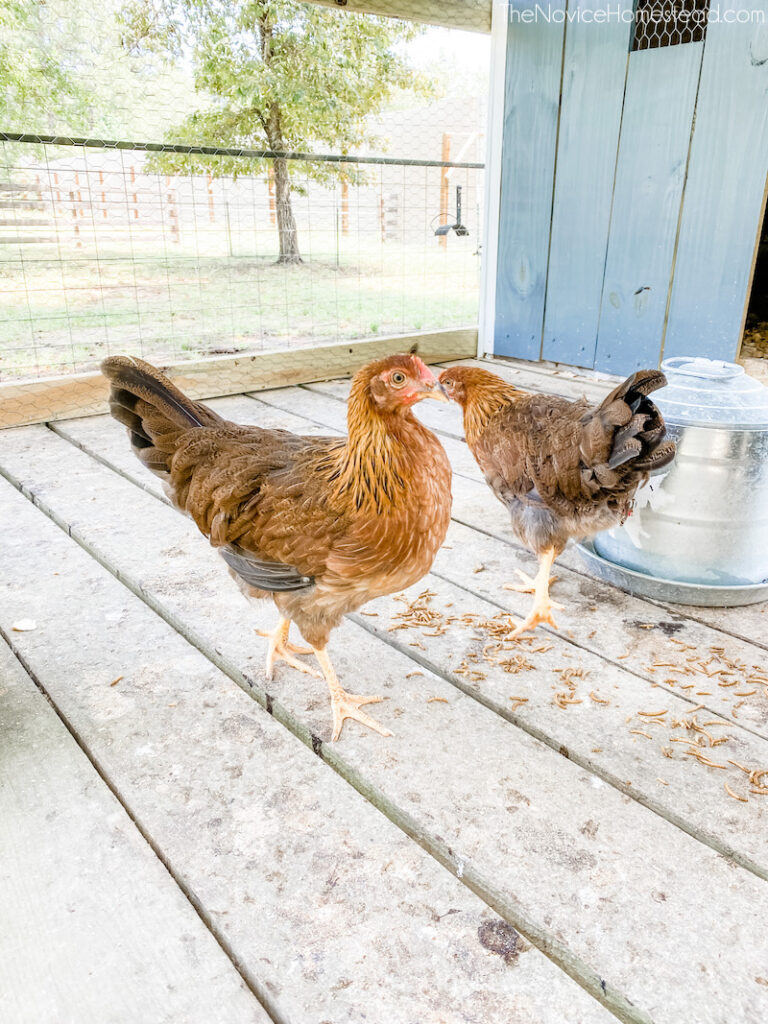Do chickens lay eggs every day? When starting your own flock, it helps to know how often chickens lay eggs — keep reading for the scoop!

Do Chickens Lay Eggs Every Day?
Knowing how often hens lay eggs will help you plan how many birds to raise when starting your flock.
If you have a breed that is known for laying eggs, your chickens will lay eggs almost every day. However, it is unlikely that you will get an egg from every single hen in your flock every single day.
That’s because the average laying cycle is more than a full day.
How Often DO Hens Lay Eggs?
The average egg cycle is 26 hours.
As soon as a hen lays an egg, her body starts to form a new one.
Because the egg cycle is about one day, most hens will lay an egg almost every day. However, there will occasionally be days where they don’t, due to the timing.
For example, say a hen lays an egg at 4pm one day. If her egg cycle is 26 hours, that means she would be “ready” around 6pm the next day. Since that is when it starts getting dark, she might not lay. Instead, she will lay the following day.
Some chickens may have a shorter cycle and indeed lay daily, but others may actually have a slower cycle.
There are also other factors that may cause chicken to not lay an egg.

What Breeds of Chickens Lay the Most Eggs?
The following types of chickens are known for being good egg producers:
- Leghorns
- Rhode Island Red (this is what we have)
- Ancona
- Plymouth Rock
- Ameraucana aka “Easter Eggers”
- New Hampshire Red
- Wyandottes
- Buff Orpington
- Australorp
- Sussex
On average, a chicken of one of these breeds will lay between 250-300 eggs per year during their prime.

What Causes Chickens to Stop Laying Eggs?
If your chickens have slowed down, or stopped laying eggs altogether, there could be a few possible reasons.
Molting
Every year, chickens will replace their feathers. During this time, they may stop laying for a few days.
Chickens do not all molt at the same time, so depending on the size of your flock, it may take a few weeks to get through the process.
You can tell when chickens are molting because there will be lots of feathers on the floor of the coop and run. The chickens themselves may also start to look a little “rough,” like you do when you’re growing out a haircut.
Poor Diet or Nutritional Deficiencies
Hens need a diet that is rich in protein and calcium to lay eggs. Commercial layer feeds are created to have the right balance of nutrients for this purpose.
Even if your chickens free range, it is a good idea to provide them with feed formulated for laying hens. This will ensure they get the proper nutrients needed for egg production.
Another food issue that can cause hens to not lay eggs as often as normal is feeding too many treats. If they’re filling up on the “junk” food, your chickens may eat less of the nutritional food they actually need.
Related: What Foods Can Chickens Eat?
Stress
Chickens aren’t big fans of change. They like consistency and routine (and they’ll usually let you know when they don’t like something!)
Another potential stressor for chickens is a predator. If they’re being bothered by another animal, this can stress them out.
Major stress will often cause chickens to stop laying eggs, and it is not good for their health in general.
Try to keep your chickens routine predictable and keep them safe and secure from predators.
Age (too old or too young)
Chickens start laying eggs between 4 and 9 months of age. Ours didn’t start laying consistently until 7-8 months. This varies by breed.
Related: 5 Signs a Chicken is Ready to Start Laying Eggs
After a few years, chickens egg product will start to slow down. By 5-7 years, they may stop laying altogether.

Changes in weather (too hot or too cold)
During periods of extreme heat or extreme cold, your chickens may not lay as much as they usually do.
Here in Texas, summers can hit 90°F or higher in the daytime. In the hottest days, I noticed that ours did not produce to their full potential. This is likely because most of their energy is devoted to staying cool.
The same can happen during extreme cold spells. Generally, chickens are more tolerant of cold weather than they are of heat. However, staying warm takes energy too, which can decrease egg production temporarily.
Related: How Cold is Too Cold for Chickens?
Shorter days
Chickens need a certain amount of daylight to lay eggs, so during winter months when the sun sets earlier, they may not lay as often.
Generally chickens need 12-14 hours of daylight, though it may vary. In areas where winter days are extremely short, some chicken keepers will use artificial lighting to encourage more egg production.
This is not something that I personally do, as I haven’t seen a need. Our chickens do fine with natural light only, even when it got dark before 6pm.
Egg Eating
Believe it or not, chickens do sometimes eat their own eggs. I’ve found the evidence before in the form of broken shell pieces in the coop!
Fortunately, it doesn’t happen often for us. From what I’ve read, chickens may eat eggs that got cracked or stepped on and are already broken. This helps keep the coop clean and is a self-preservation strategy.
It’s also hard to tell who is eating the eggs or why when it happens, since you’re likely not going to see them do it.
Learn More: How to Stop Chickens From Eating Their Own Eggs
Parasites or Other Illness
If none of the above seems to be an issue, you may be dealing with a parasite or sick chicken(s).
If you suspect that one of your chickens is sick, quarantine them and contact your vet. Illness can spread quickly through a flock if left unattended.